The success of African Parks’ management function is dependent on its host countries, their ministries, wildlife institutions and traditional authorities. Prioritising and strengthening these relationships are essential in gaining support and working together to achieve our common goal of protecting critical landscapes across Africa. The statutory role of our government partners is enshrined in our agreements, and their participation is guaranteed through approval of park business plans and budgets, as well as representation on each park’s board. We thank them all for the trust and confidence bestowed upon African Parks and their commitment to biodiversity conservation
-
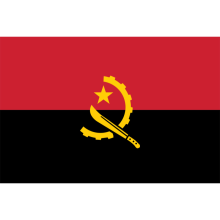 The Government of AngolaAfrican Parks signed a long-term management agreement for Iona National Park with the Angolan Ministry of Environment (MINAMB) and the National Institute of Biodiversity and Conservation (INBC) in 2019. The MINAMB is the ministerial department responsible for the formulation, execution and control of the Executive’s policy regarding environmental protection. This includes the preservation and conservation of environmental quality, pollution control, terrestrial and aquatic biodiversity, conservation areas and enhancement of the natural heritage, as well as the preservation and rational use of renewable natural resources. The INBC was created to ensure the implementation of the Biodiversity Conservation Policy and management of the National System of Conservation Areas. Ms Ana Paula Chantre Luna de Carvalho is the current Minister of the MINAMB and Ms Albertina Nzuzi Matias is the current Director General of the INBC.
The Government of AngolaAfrican Parks signed a long-term management agreement for Iona National Park with the Angolan Ministry of Environment (MINAMB) and the National Institute of Biodiversity and Conservation (INBC) in 2019. The MINAMB is the ministerial department responsible for the formulation, execution and control of the Executive’s policy regarding environmental protection. This includes the preservation and conservation of environmental quality, pollution control, terrestrial and aquatic biodiversity, conservation areas and enhancement of the natural heritage, as well as the preservation and rational use of renewable natural resources. The INBC was created to ensure the implementation of the Biodiversity Conservation Policy and management of the National System of Conservation Areas. Ms Ana Paula Chantre Luna de Carvalho is the current Minister of the MINAMB and Ms Albertina Nzuzi Matias is the current Director General of the INBC. -
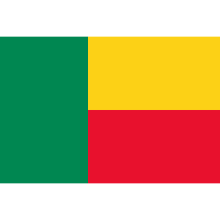 The Government of BeninThe Government of Benin signed an agreement with African Parks in May 2017 to revitalise, rehabilitate and develop Pendjari National Park. In June 2020, W National Park was added to the African Parks portfolio. The restoration of these parks is one of 45 flagship projects of the “Revealing Benin” national investment programme, announced by the Presidency of the Republic of Benin in December 2016. The Minister of the Living Environment and Sustainable Development ministry (Ministère du Cadre de Vie et du Développement Durable), José Tonato, the Director General of the National Centre of Management of Reserves and Protected Areas (CENAGREF), Abdel Aziz Baba-Moussa, and the Managing Director of the National Agency for the Promotion of Heritage and the Development of Tourism, Edmond Toli, have all played an instrumental role in this partnership.
The Government of BeninThe Government of Benin signed an agreement with African Parks in May 2017 to revitalise, rehabilitate and develop Pendjari National Park. In June 2020, W National Park was added to the African Parks portfolio. The restoration of these parks is one of 45 flagship projects of the “Revealing Benin” national investment programme, announced by the Presidency of the Republic of Benin in December 2016. The Minister of the Living Environment and Sustainable Development ministry (Ministère du Cadre de Vie et du Développement Durable), José Tonato, the Director General of the National Centre of Management of Reserves and Protected Areas (CENAGREF), Abdel Aziz Baba-Moussa, and the Managing Director of the National Agency for the Promotion of Heritage and the Development of Tourism, Edmond Toli, have all played an instrumental role in this partnership. -
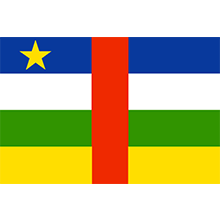 Central African Republic (CAR)In 2014, African Parks received the mandate to manage Chinko in partnership with the Ministry of Water, Forestry, Hunting and Fishing, which retains primary responsibility for sustainable management of forest resources, commercial forestry operations and governance of national parks in the CAR. An updated and revitalised mandate for Chinko was further signed in April 2020 with the minister, Idriss Amit, who has been instrumental in supporting the growth of protected area management in the CAR.
Central African Republic (CAR)In 2014, African Parks received the mandate to manage Chinko in partnership with the Ministry of Water, Forestry, Hunting and Fishing, which retains primary responsibility for sustainable management of forest resources, commercial forestry operations and governance of national parks in the CAR. An updated and revitalised mandate for Chinko was further signed in April 2020 with the minister, Idriss Amit, who has been instrumental in supporting the growth of protected area management in the CAR. -
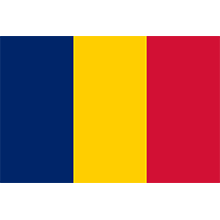 The Republic of ChadThe Republic of Chad is African Parks’ partner in the management of the Greater Zakouma Ecosystem – an extensive ecosystem that includes Zakouma National Park and Siniaka Minia Wildlife Reserve – as well as the Natural and Cultural Reserve of Ennedi and the Aouk Project. In 2010, under the advice of the European Union, the Chadian Government approached African Parks to assume management responsibility of Zakouma National Park, to help end the ongoing scourge of elephant poaching. The public-private management agreement was signed in June 2010, and in October African Parks commenced management of the park and its periphery. In 2017, a new 10-year agreement was signed for the development of the Functional Ecosystem of Zakouma, as well as a 15-year agreement for the creation, funding and management of the new Natural and Cultural Reserve of Ennedi. M. Mahamat Abdelkerim Hanno is the Minister of Environment, Fisheries and Sustainable Development (MEPDD) and M. Abderamane Chaibo is the Director of Wildlife
The Republic of ChadThe Republic of Chad is African Parks’ partner in the management of the Greater Zakouma Ecosystem – an extensive ecosystem that includes Zakouma National Park and Siniaka Minia Wildlife Reserve – as well as the Natural and Cultural Reserve of Ennedi and the Aouk Project. In 2010, under the advice of the European Union, the Chadian Government approached African Parks to assume management responsibility of Zakouma National Park, to help end the ongoing scourge of elephant poaching. The public-private management agreement was signed in June 2010, and in October African Parks commenced management of the park and its periphery. In 2017, a new 10-year agreement was signed for the development of the Functional Ecosystem of Zakouma, as well as a 15-year agreement for the creation, funding and management of the new Natural and Cultural Reserve of Ennedi. M. Mahamat Abdelkerim Hanno is the Minister of Environment, Fisheries and Sustainable Development (MEPDD) and M. Abderamane Chaibo is the Director of Wildlife -
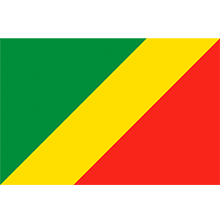 The Republic Of The CongoThe Ministry of Forest Economy executes national policy regarding sustainable development, forest economy and the environment. In 2010, African Parks signed its first public-private management agreement with the ministry for Odzala- Kokoua National Park. In 2020, an amendment to the agreement was signed with the minister, Madame Rosalie Matondo, adding the Lossi Gorilla Sanctuary to the protected area and creating the Odzala-Kokoua-Lossi Foundation as the management entity. Under the ministry, African Parks works with the Congolese Agency for Wildlife and Protected Areas (ACFAP in French), which is represented by its Director-General, Jean Bosco Nganongo.
The Republic Of The CongoThe Ministry of Forest Economy executes national policy regarding sustainable development, forest economy and the environment. In 2010, African Parks signed its first public-private management agreement with the ministry for Odzala- Kokoua National Park. In 2020, an amendment to the agreement was signed with the minister, Madame Rosalie Matondo, adding the Lossi Gorilla Sanctuary to the protected area and creating the Odzala-Kokoua-Lossi Foundation as the management entity. Under the ministry, African Parks works with the Congolese Agency for Wildlife and Protected Areas (ACFAP in French), which is represented by its Director-General, Jean Bosco Nganongo. -
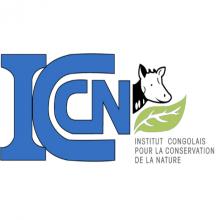 The Democratic Republic of the Congo (DRC)The Institut Congolais pour la Conservation de la Nature (ICCN) of the DRC is a public entity housed under the Ministry of Environment charged with the sustainable management of biodiversity in protected areas in the DRC, in cooperation with local communities and other partners. The ICCN manages a natural and cultural heritage made up of nine national parks and a constellation of 80 reserves covering over 13% of the country’s area. We began our work with the ICCN in Garamba National Park in 2005. The ICCN is currently under the leadership of Director General Milan Ngangay Yves.
The Democratic Republic of the Congo (DRC)The Institut Congolais pour la Conservation de la Nature (ICCN) of the DRC is a public entity housed under the Ministry of Environment charged with the sustainable management of biodiversity in protected areas in the DRC, in cooperation with local communities and other partners. The ICCN manages a natural and cultural heritage made up of nine national parks and a constellation of 80 reserves covering over 13% of the country’s area. We began our work with the ICCN in Garamba National Park in 2005. The ICCN is currently under the leadership of Director General Milan Ngangay Yves. -
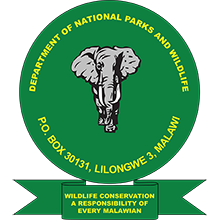 Malawi Department of National Parks and Wildlife (DNPW)The relationship with Malawi’s Department of National Parks and Wildlife (DNPW) is the longest-running partnership for African Parks, dating back to the agreement for the Majete Wildlife Reserve in 2003. The DNPW is the government agency responsible for the management and conservation of wildlife resources and the administration of the Wildlife Policy and National Parks and Wildlife Act. In 2015, African Parks signed an agreement with the Malawi Government, through the DNPW, to manage Nkhotakota Wildlife Reserve and Liwonde National Park. In 2018, Liwonde National Park was extended to include Mangochi Forest Reserve. Here African Parks has also partnered with the Department of Forestry, the government agency responsible for planning and providing technical extension and guidance, as well as facilitating forestry development on customary land and forest reserves. The Malawi Public-Private Partnership Commission (PPPC) facilitated the signing of these agreements. Mr Brighton Kumchedwa is the current Director of the DNPW.
Malawi Department of National Parks and Wildlife (DNPW)The relationship with Malawi’s Department of National Parks and Wildlife (DNPW) is the longest-running partnership for African Parks, dating back to the agreement for the Majete Wildlife Reserve in 2003. The DNPW is the government agency responsible for the management and conservation of wildlife resources and the administration of the Wildlife Policy and National Parks and Wildlife Act. In 2015, African Parks signed an agreement with the Malawi Government, through the DNPW, to manage Nkhotakota Wildlife Reserve and Liwonde National Park. In 2018, Liwonde National Park was extended to include Mangochi Forest Reserve. Here African Parks has also partnered with the Department of Forestry, the government agency responsible for planning and providing technical extension and guidance, as well as facilitating forestry development on customary land and forest reserves. The Malawi Public-Private Partnership Commission (PPPC) facilitated the signing of these agreements. Mr Brighton Kumchedwa is the current Director of the DNPW. -
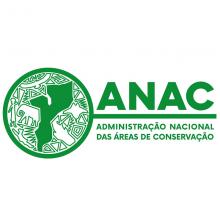 The Republic of MozambiqueIn December 2017, African Parks signed a 25-year co- management agreement with Mozambique’s National Administration of Conservation Areas (ANAC), to restore, develop and manage Bazaruto Archipelago National Park, and revitalise it to become one of the leading and most productive marine protected areas in East Africa. Celmira Frederico Pena da Silva is the current Director General of ANAC.
The Republic of MozambiqueIn December 2017, African Parks signed a 25-year co- management agreement with Mozambique’s National Administration of Conservation Areas (ANAC), to restore, develop and manage Bazaruto Archipelago National Park, and revitalise it to become one of the leading and most productive marine protected areas in East Africa. Celmira Frederico Pena da Silva is the current Director General of ANAC. -
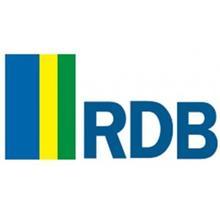 The Republic of RwandaThe Rwanda Development Board (RDB) is the government agency responsible for managing Rwanda’s national parks and protected areas. Its mission is to transform and develop Rwanda’s economy by enabling its private-sector growth. African Parks began its work with the RDB in Akagera National Park in 2010 and in Nyungwe National Park in 2020. In both agreements we recognise RDB CEO, Ms Clare Akamanzi, for her unwavering support of Akagera and Nyungwe.
The Republic of RwandaThe Rwanda Development Board (RDB) is the government agency responsible for managing Rwanda’s national parks and protected areas. Its mission is to transform and develop Rwanda’s economy by enabling its private-sector growth. African Parks began its work with the RDB in Akagera National Park in 2010 and in Nyungwe National Park in 2020. In both agreements we recognise RDB CEO, Ms Clare Akamanzi, for her unwavering support of Akagera and Nyungwe. -
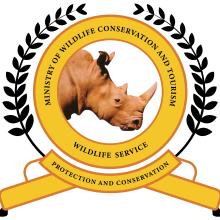 The Republic of South SudanIn August 2022, the Government of South Sudan signed a 10-year renewable management agreement with African Parks for Boma and Badingilo National Parks, including the wildlife corridors and proposed extension zones in the broader landscape – an area extending over three million hectares. With this commitment, the South Sudanese Government has ensured the long-term protection of these vital ecosystems, to secure lasting benefits for people and wildlife. This partnership is made possible by the Ministry of Wildlife Conservation and Tourism (MWCT), through the South Sudan Wildlife Service (SSWS), the legal authority under the ministry responsible for management of wildlife and protected areas in South Sudan. His Excellency Rizik Zakaria Hassan is the Minister of the MWCT.
The Republic of South SudanIn August 2022, the Government of South Sudan signed a 10-year renewable management agreement with African Parks for Boma and Badingilo National Parks, including the wildlife corridors and proposed extension zones in the broader landscape – an area extending over three million hectares. With this commitment, the South Sudanese Government has ensured the long-term protection of these vital ecosystems, to secure lasting benefits for people and wildlife. This partnership is made possible by the Ministry of Wildlife Conservation and Tourism (MWCT), through the South Sudan Wildlife Service (SSWS), the legal authority under the ministry responsible for management of wildlife and protected areas in South Sudan. His Excellency Rizik Zakaria Hassan is the Minister of the MWCT. -
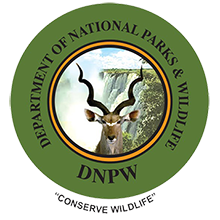 The Republic of ZambiaThe Zambian Department of National Parks and Wildlife (DNPW), under the Ministry of Tourism, works to protect and conserve Zambia’s wildlife estates and improve the quality of life among communities, while maintaining healthy biodiversity. African Parks began its work with the DNPW in Liuwa Plain National Park in 2003 and in the Bangweulu Wetlands in 2008. Mr Andrew Chomba is the current Acting Director of the DNPW.
The Republic of ZambiaThe Zambian Department of National Parks and Wildlife (DNPW), under the Ministry of Tourism, works to protect and conserve Zambia’s wildlife estates and improve the quality of life among communities, while maintaining healthy biodiversity. African Parks began its work with the DNPW in Liuwa Plain National Park in 2003 and in the Bangweulu Wetlands in 2008. Mr Andrew Chomba is the current Acting Director of the DNPW. -
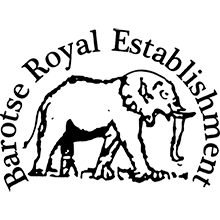 The Barotse Royal Establishment (BRE)The BRE is recognised by the Zambian Government as an official community administrative entity in Western Province and, as such, is an essential partner in the Liuwa Plain project. His Majesty the Litunga Lubosi Imwiko II and the Limulunga Kuta (Parliament) played an instrumental role in assisting the Zambian Government to conclude an agreement with African Parks in 2003. Since then, the Litunga has maintained an active role in guiding the project through the participation of two BRE representatives on the Liuwa Board.
The Barotse Royal Establishment (BRE)The BRE is recognised by the Zambian Government as an official community administrative entity in Western Province and, as such, is an essential partner in the Liuwa Plain project. His Majesty the Litunga Lubosi Imwiko II and the Limulunga Kuta (Parliament) played an instrumental role in assisting the Zambian Government to conclude an agreement with African Parks in 2003. Since then, the Litunga has maintained an active role in guiding the project through the participation of two BRE representatives on the Liuwa Board. -
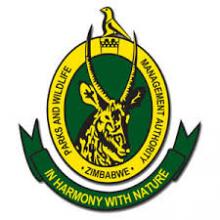 The Republic of ZimbabweThe Zimbabwe Parks and Wildlife Management Authority (PWMA) operates under the Parks and Wildlife Act [Chapter20:14] of 2001. The Authority manages about five million hectares of land – or 13% of Zimbabwe’s total land area. Mandated with the protection, management and administration of the wildlife of Zimbabwe, the Authority has a proud history of sound management that endeavours to preserve the unique flora and fauna heritage of Zimbabwe. African Parks signed a 20-year mandate with the PWMA for Matusadona National Park in 2019. Mr Fulton Mangwanya is the current Director General of the PWMA.
The Republic of ZimbabweThe Zimbabwe Parks and Wildlife Management Authority (PWMA) operates under the Parks and Wildlife Act [Chapter20:14] of 2001. The Authority manages about five million hectares of land – or 13% of Zimbabwe’s total land area. Mandated with the protection, management and administration of the wildlife of Zimbabwe, the Authority has a proud history of sound management that endeavours to preserve the unique flora and fauna heritage of Zimbabwe. African Parks signed a 20-year mandate with the PWMA for Matusadona National Park in 2019. Mr Fulton Mangwanya is the current Director General of the PWMA.